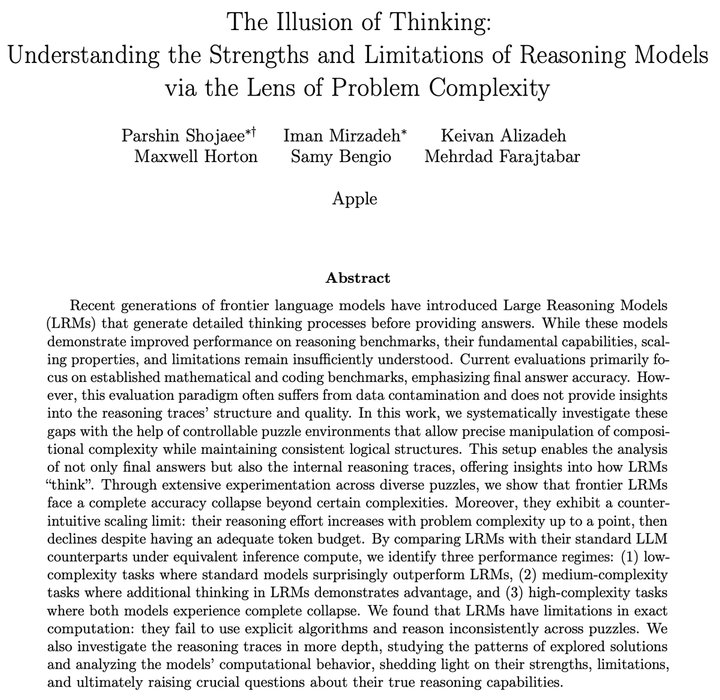Sublime
An inspiration engine for ideas
Finally had time to read & process this great post. I run into the pattern quite often, it goes:
" is good actually, because "
Galaxy brain reasoning is the best way to justify anything while looking / feeling good about it.
From this perspective for example, ... See more
Andrej Karpathyx.comwe need to figure out which models are reliable and useful. We must also discard or update the unreliable ones, because unreliable or flawed models come with a cost.
Rhiannon Beaubien • The Great Mental Models Volume 1: General Thinking Concepts
yes, you know why? because I now see people worth billions who drive this field are incredibly smart, but they also understand as much of symbolic stuff as the average laymen. it takes a few minutes talking to them to realize how little they know...
back then, most "experts" - even these in ML, even Google's DeepMind -... See more
Taelinx.com
🧵 1/8 The Illusion of Thinking: Are reasoning models like o1/o3, DeepSeek-R1, and Claude 3.7 Sonnet really "thinking"? 🤔 Or are they just throwing more compute towards pattern matching?
The new Large Reasoning Models (LRMs) show promising gains on math and coding benchmarks, but we found their fundamental limitations... See more
The formalism of Solomonoff induction measures the “complexity of a description” by the length of the shortest computer program which produces that description as an output.
Eliezer Yudkowsky • Rationality

The ultimate guide to prompt engineering in 2025
Learn:
1. Why role prompting (e.g. “You are a math professor. . .”) is largely ineffective, counter to what most people think. Research shows that while role prompts may help with tone or writing style, they have little to no effect on improving... See more

Become AI polymath
- Play with trained models, learn prompt engineering, connect them with eachother, give them vector database memory, put them into agent or multiagent frameworks such as Langchain, AutoGen or CrewAI, and so on, with for example Andrew Ng.
- Implement and train various AI... See more
